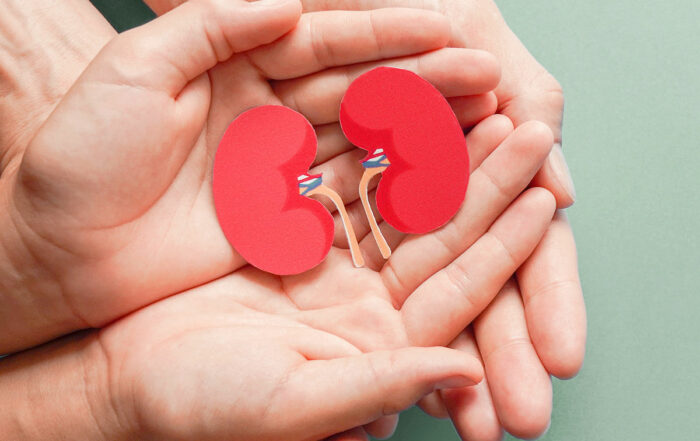
Kidney disease most often affects adults, but this does not mean that children are immune to developing the condition.
What’s more, kidney disease in children can be very different than in adults, which highlights the need for more pediatric-specific studies and clinical tools. Fortunately, the Can-SOLVE CKD Pediatrics Committee has been working to address these disparities and develop new solutions for Canada’s youngest kidney patients.
One priority project is called PRO-Kid, which involves the development and evaluation of a symptom assessment scale for children living with kidney disease.
“All of the existing questionnaires have been developed for adults or children with other health conditions, for example cancer, so we don’t know whether these tools are appropriate for children living with kidney disease,” explains Allison Dart, co-chair of the Pediatrics Committee who has been co-leading the development of PRO-Kid along with Mina Matsuda-Abedini.
She emphasizes that a tool such as PRO-Kid is especially important since children living with kidney disease can experience very different symptoms than adults. For example, children generally have more energy than adults and are less likely to experience pruritus (itchy skin). As well children generally tend to be healthy other than having kidney disease, whereas adults tend to have other health conditions simultaneously, such as cardiovascular disease.
To account for these differences in symptoms, Dart’s team sought to develop PRO-Kid. For the first phase of the project, this involved many interviews with children living with kidney disease and their family members to explore what symptoms are most important to them, and, notably, how to ask the questions in a way that kids understand. The results were used to create the new symptom assessment tool.
Now, the team is completing phase two of the study, which will evaluate the effectiveness of the tool in the clinic. It’s currently being tested in Toronto and Winnipeg, with five more sites across Canada slated to begin testing in the coming months.
“We are really focused on the patient experience with this study,” says Dart, noting that along with consulting patients and their families extensively in the first phase of the project, the research team includes three patient partners who work closely to inform the study process. The team hopes to have even more patient partners on board for the next stage of the project, to help with knowledge translation and dissemination of PRO-Kid, meaning how to get the tool into the hands of physicians in the clinic.
Along with the development and evaluation of PRO-Kid, the Pediatrics Committee is interested in exploring the use of administrative data across the country to advance pediatric nephrology research, and as a first initiative Michael Zappitelli, co-chair of the Pediatrics Committee is leading the planning of a study focused on acute kidney injury in children.
As well, they are prioritizing building a network across Canada that can more easily launch pediatric studies. The relative rarity of kidney disease in children makes it difficult to study. “You really need a national network to recruit enough patients to be able to answer questions in a meaningful way,” emphasizes Dart. “This will allow us to accelerate pediatric research substantially, with the ultimate goal of improving care for children living with kidney disease.”
“I’ve seen how adult nephrologists have used other tools in a meaningful way, and I was really missing having a tool that I could use with my patients, so I think the most exciting part of this study is that it will help improve patient care.”
Dr. Allison Dart
More Research Impact
Connect with us!
Subscribe to learn more about what we do, why it matters, and how you can get involved!







